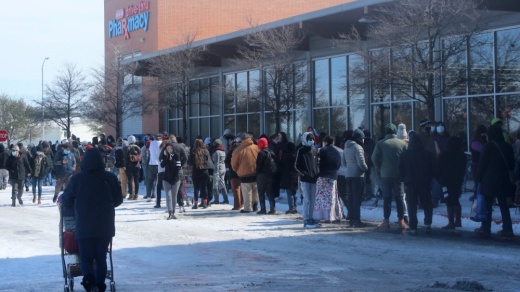Updates on how Austin is adjusting its operations in the wake of last February's winter storm were provided during a Jan. 19 meeting of City Council's audit committee. The session was the latest in a series of council reviews of the storm and its fallout that are likely to continue on at least a quarterly basis, and it came one day before much of Central Texas will be covered in a winter storm watch.
Discussion at the January meeting centered around the city's progress so far on the 100-plus recommendations proposed through after-action reports on the storm released last fall. District 10 Council Member Alison Alter referenced a finding of the city's internal audit on storm response—that many key readiness proposals of the past were neglected prior to Uri—as a key for the city to keep in mind going forward.
“There’s a real concern that I imagine that all of us share to make sure that we don’t repeat the mistake of the past and that the recommendations that can be put forward do get implemented. We also need to make sure that we are prioritizing because we now probably have close to 1,000 different recommendations related to disaster preparedness between different reports," Alter said.
Of the 132 recommendations forwarded in Austin's own winter storm after-action report, 32 have been identified as priorities for staff involved in emergency management improvements. And of those, five are now complete, while 12 remain in progress and 15 require further follow-up with various city departments, staff said.
“While addressing all the recommendations made since Winter Storm Uri is a tremendous undertaking, critical work is underway,” Assistant City Manager Rey Arellano said in a statement. “With each day, the city of Austin is more prepared to respond in the face of disasters and is committed to supporting this community.”
A Jan. 19 memo from Arellano detailing some improvements the city, Austin Energy and Austin Water made since last year may be viewed here.
Emergency planning evolves
Arellano and Juan Ortiz, the director of the city's emergency management office, both highlighted the difficulty that Austin's disaster response systems faced leading into Uri as another reason to continue pursuing better preparations. Arellano noted Austin experienced a rash of disasters over the past decade, including fires, floods and most recently the COVID-19 pandemic, that made it difficult to plan ahead and secure funding to keep pace with local needs. Ortiz also blamed some of Austin's lacking response to Uri on his office's limited bandwidth ahead of the winter storm given its focus on the pandemic and vaccine distribution efforts that were still in an early stage at that time.
Ortiz said with those factors in mind, disaster planning should remain in focus regardless of current conditions such as the winter weather expected Jan. 20—which he said has sparked planning meetings at the local and state levels this week.
“Preparedness is not a one-time deal. Preparedness is a year-round process, 365 days a year. And I want to encourage all of us to do that," Ortiz said.
Council members also touched on issues such as the city's limited budget for disaster response work, support for residents' personal preparations and building out resources in the community. District 9 Council Member Kathie Tovo floated ideas such as additional training and developing a "resilience hub in a box" to share with schools, places of worship and community centers to improve their capabilities during extreme events.
While council's discussion mainly stemmed from Uri, Alter noted that the city should not remain "hyperfocused" only on winter at the expense of other planning. She highlighted the wildfire raging in Bastrop County and the regional forecast for a dry start to 2022 as signs that more preparation for fires and other disasters that could strike Central Texas is still needed.
Alter also asked about emergency training for council members, which she said has not been offered to her in her six years in office. Ortiz said a council work session on Feb. 15 will include such a training session.
“It’s our responsibility as a city to be able to pivot and to prepare," Alter said.





